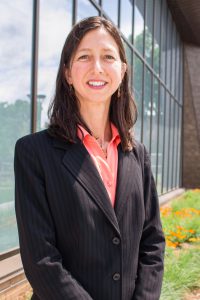
The Journey Begins
Beginning a doctoral program is a major undertaking, and successful completion hinges on motivation and persistence (Sverdlik, Hall, McAlpine, & Hubbard, 2018). Tenure requires the attainment of a terminal degree in-field. Meeting this requirement to maintain a rewarding career as a practitioner-scholar is a strong motivator. Numerous contextual factors influence doctoral student persistence, including cohort dynamics (Holmes et al., 2016), scholarly activity (Anderson, Cutright, & Anderson, 2013), and program structure (Golde, 2005). A work-life imbalance is a pervasive concern among doctoral students (Levecque, Anseel, De Beuckelaer, Van der Heyden, & Gisle, 2017), making cohort and family support vital to program endurance. Clearly expressing program expectations and the corresponding need for time to meet those demands is requisite to sustaining social/familial support networks. Early and frequent conversations with the doctoral program and home university leaders clarify program expectations and reveal opportunities for scholarship, funding, and workload support (Leijen, Lepp, & Remmik, 2016). Reflecting on the doctoral journey reveals steep challenges, but resources and incentives to persist contribute in greater measure.
Anderson, B., Cutright, M., & Anderson, S. (2013). Academic involvement in doctoral education: Predictive value of faculty mentorship and intellectual community on doctoral education outcomes. International Journal of Doctoral Studies, 8, 195–215. https://doi.org/10.28945/1923
Golde, C. M. (2005). The role of the department and discipline in doctoral student attrition: Lessons from four departments. The Journal of Higher Education, 76(6), 669–700. https://doi.org/10.1353/jhe.2005.0039
Holmes, B., Brown, L., Parker, D., Mann, J., Woods, E., Gibson, J., … Hall, D. (2016). Decoding the persistence and engagement patterns of doctoral students who finish. 2016 International Education Conference, 13. Retrieved from https://www.scribd.com/doc/309651051/decoding-the-persistence-and-engagement-patterns-of-doctoral-students-who-finish-3-21-16
Leijen, Lepp, L., & Remmik, M. (2016). Why did I drop out? Former students’ recollections about their study process and factors related to leaving the doctoral studies. Studies in Continuing Education, 38(2), 129–144. https://doi.org/10.1080/0158037X.2015.1055463
Levecque, K., Anseel, F., De Beuckelaer, A., Van der Heyden, J., & Gisle, L. (2017). Work organization and mental health problems in PhD students. Research Policy, 46(4), 868–879. https://doi.org/10.1016/j.respol.2017.02.008
Sverdlik, A., Hall, N. C., McAlpine, L., & Hubbard, K. (2018). The PhD experience: A review of the factors influencing doctoral students’ completion, achievement, and well-being. International Journal of Doctoral Studies, 13, 361–388. https://doi.org/10.28945/4113
Problem of Practice
Forests are central to the sense of place and the economic and ecological integrity of forested regions (Farnum, Hall, & Kruger, 2005). Minnesota’s forests are vital to sustaining clean water resources, wildlife diversity, the timber industry, and tourism (Kramer, 2012). Rapidly advancing changes in climate threaten Minnesota’s forests (Handler et al., 2014), and recent state-level management decisions to intensify harvesting activity further stress the integrity of these ecosystems. Sustainable forest management in this dynamic and interconnected socio-ecological context depends on highly trained forestry professionals. A recent evaluation of national forestry education performance reveals forestry program graduates generally possess adequate technical competencies, yet lack vital interpersonal aptitudes of effective communication, collaboration, and conflict resolution (Sample et al., 2015). This deficiency of essential skills signals a need for higher education to adapt experiential learning pedagogy to better equip students with these fundamental attributes (Dharmarajan, Pachigalla, & Lanka, 2012).
Dharmarajan, P., Pachigalla, R., & Lanka, K. (2012). The significance of inculcating soft skills in students in the process of teaching hard skills. International Journal of Applied Research & Studies, 1(2), 1–11. Retrieved from http://www.hgsitebuilder.com/files/writeable/uploads/hostgator427959/file/ijars209.pdf
Farnum, J., Hall, T., & Kruger, L. E. (2005). Sense of place in natural resource recreation and tourism: An evaluation and assessment of research findings. General Technical Report – Pacific Northwest Research Station, USDA Forest Service, (PNW-GTR-660), 59 pp. Retrieved from http://www.cabdirect.org/abstracts/20063075726.html;jsessionid=4A97FB511ABE77E67633F2C742CAD2C0
Handler, S., Duveneck, M. J., Iverson, L., Peters, E., Scheller, R. M., Wythers, K. R., … Ziel, R. (2014). Minnesota forest ecosystem vulnerability assessment and synthesis: A report from the Northwoods Climate Change Response Framework project. https://doi.org/10.2737/NRS-GTR-133
Sample, V. A., Bixler, R. P., McDonough, M. H., Bullard, S. H., & Snieckus, M. M. (2015). The promise and performance of forestry education in the United States: Results of a survey of forestry employers, graduates, and educators. Journal of Forestry, 113(6), 528–537. https://doi.org/10.5849/jof.14-122
Research Questions
Exploring forestry education in Minnesota may reveal opportunities to improve sustainable forestry pedagogies and the caliber of forestry professionals entering the field. Dramatic environmental change warrants transformative education to cultivate ecologically inspired resilience thinking (Lotz-Sisitka et al., 2015). The purpose of this qualitative study is to explore the reorientation of university classroom practices for sustainable forestry management in Minnesota.
RQ1: How are forestry education faculty reorienting classroom practices around sustainable forestry?
RQ2: What do Minnesota forestry education faculty perceive as their role in supporting sustainable forest management?
RQ3: How do recent graduates of Minnesota forestry education programs describe their level of preparedness for professional forestry careers?
Lotz-Sisitka, H., Wals, A. E. J., Kronlid, D., & McGarry, D. (2015). Transformative, transgressive social learning: Rethinking higher education pedagogy in times of systemic global dysfunction. Current Opinion in Environmental Sustainability, 16, 73–80. https://doi.org/10.1016/j.cosust.2015.07.018